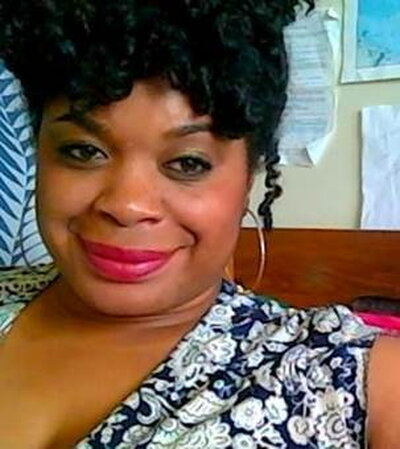
Khanga Letter Project: Letter to our Mothers
by Anne Namasti Lutomi

Weavers is an online google group of Kenyan women in Kenya and abroad that endeavors to create a safe space where self-identifying feminist women nominate each other to engage in intellectual, advocacy, and informal learning. This spring, women of Weavers started work on a project titled Khanga Letters. According to Weavers (2015) the naming of the project is situated in the definition and uses of Khanga as follows:
Khangas are a stylistic device. Also a metaphor. Also a meeting space for women. Also a reference to different kinds of bodily embodiments as women. Also khangas are used as headscarves, shawls, skirts, baby-carriers, sister-presents, tablecloths, curtains, picnic blankets, bedcovers, gifts between lovers, redolent of women. Khangas carry messages between women, too. Khangas will deepen the symbolic structure of the work. We’re tying the khangas around our waists because the work of bringing these books into the world awaits.
Khanga letters is a series of three books that explore different relationships. This project recognizes that “mothering,” “daughtering,” “‘sistering,” and “womaning” need not be acts from people related to one but are acts that some people do. Therefore in writing these Khanga letters we were encouraged to be creative in imagining mothers. These mothers were not necessarily expected to be our biological mothers. The first book is letters to our mothers, the second will be letters to our sisters, and the last one letters to our daughters. These letters are in prose, poetry, and photography and refer to khangas in some way. Each book explores and expresses a different relationship. I submitted four poems; two will be published in this book. Following, I share one of these poems. This poem borrows from the Maragoli of Kenya idiom of expressing their worries and problems. When writing this poem, I tapped into my childhood and present memories of my mother who is a Maragoli, her sisters, and their friends and their use of Maragoli idiom kehenda mwoyo, “worries of the heart,” to name, share and discuss their worries. Elsewhere, historian Kenda Mutongi’s book,Worries of the Heart: widows, family, and community in Kenya, captures how Maragoli widows advocate for themselves by overtly sharing their social, economic, and political problems—their kehenda mwoyo “worries of the heart.”
My mother’s worries
My mother has worries of the times
worries
of then
of here
of there
My mother has worries of the belly
worries
of her children
of her daughters
of her sons
My mother has worries of people
worries
of her people
of my father’s people
of all people
My mother has worries of being
worries
of health
of wealth
of death
My mother has worries of the heart
worries
of love
of care
of truth
My mother has worries of dreams
worries
of becomings
of unbecomings
of non-becomings
Anne Namatsi Lutomia a doctoral student in the department of Education Policy, Organization and Leadership—Human Resource Development. She is the 2015-2016 Thelma and Orin Hove Scholarship recipient. She also received the 2014-2015 Maria Pia Gratton International Award. Her scholarship includes leadership development, adult learning, small nonprofit organizations, labor mobility, and African feminisms. She is a budding poet and photographer. She recently published her first poem, “It is my turn to eat the gizzard,” with Praxis: Journal of Gender and Cultural Critique.
Brenda Sanyo and Anne Lutomia, doctoral candidates in the College of Education , co-authored an article published in Feminist Africa titled “Archives and Collective Memories: Searching for African women in the pan-African imaginary.” The article is available here:
http://agi.ac.za/sites/agi.ac.za/files/6_fa20_feature_5.pdf. They are also co-authors of “ Feminism Unfinished: Towards Gender Justice and Women’s Rights in Kenya” in Kithinji, M.M., M.M. Koster & J.P. Rotich (Eds.), Kenya at Fifty: Milestones, Challenges and Prospects. New York: Palgrave Macmillan, 2016. More information about the book is available here:
http://www.amazon.com/Kenya-After-Reconfiguring-Education-Modernities-ebook/dp/B01AME3FMS
http://www.amazon.com/Kenya-After-Reconfiguring-Education-Modernities-ebook/dp/B01AME3FMS>.
Katrina Spencer: A Center for African Studies FLAS Student’s Adventures in Studying Arabic

After more than a decade of study, it’s safe to say that I’m a pretty experienced language learner. To me, languages are a medium for learning more about neighbors, those near and those far. If you say “direct and indirect object pronouns,” I know what you mean. “Accents and diacritical marks?” Got that, too. “Formal and informal registers?” Yes, I understand. But here’s a series of terms that are altogether new to me:
hamza and glottal stops
teeth and tails
vowelled and unvowelled texts
To find out more about Katrina’s experiences with Arabic language learning, check out the International and Area Studies Library’s Glocal Notes Blog:
Adventures in Arabic, Part I: https://publish.illinois.edu/iaslibrary/2015/09/29/adventures-in-arabic-part-i/
Adventures in Arabic, Part II: https://publish.illinois.edu/iaslibrary/2015/10/06/adventures-in-arabic-part-ii-2/